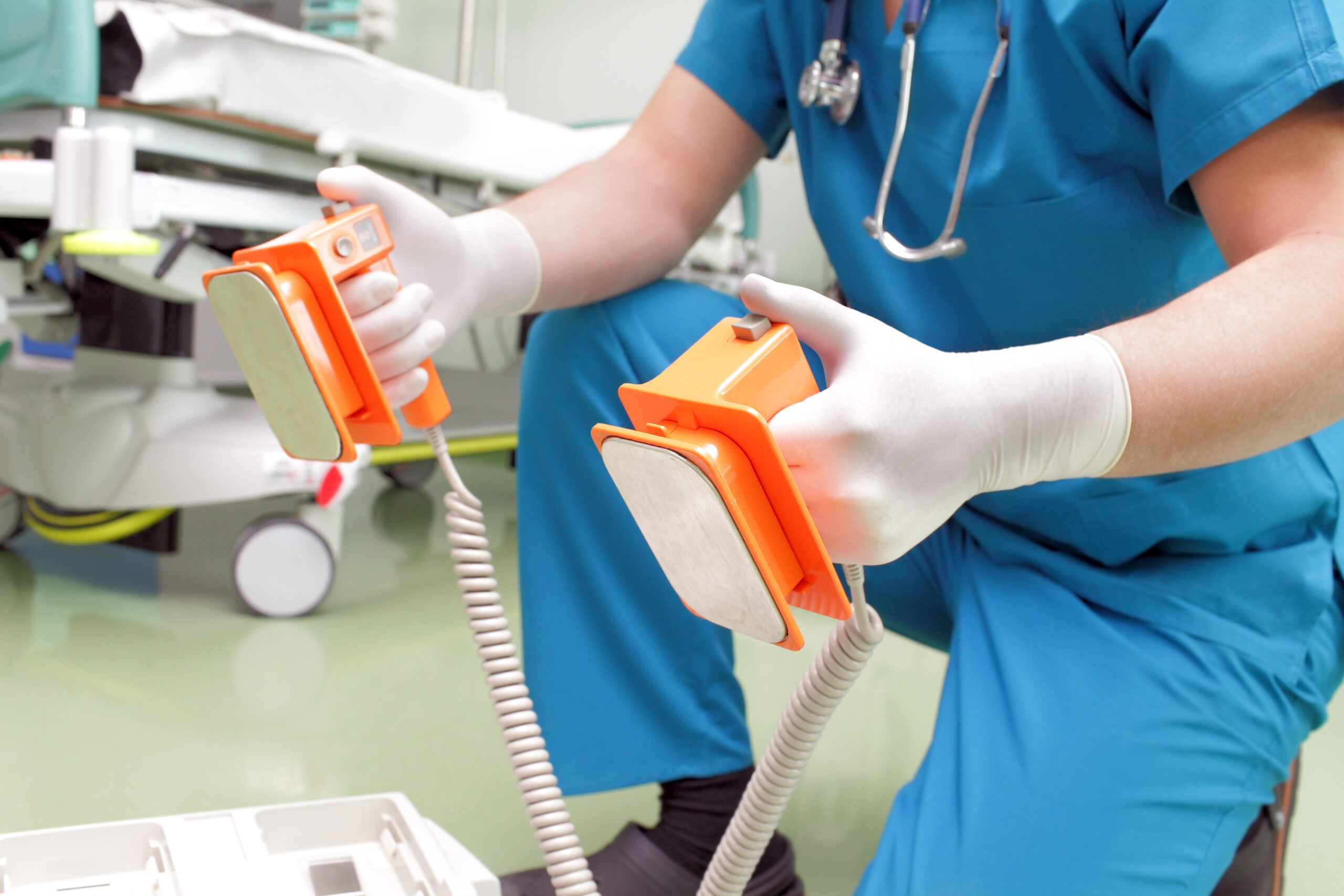An ambulance’s siren wails as it drives up to the to the hospital’s emergency room door. Two nurses and a doctor wait as the stretcher is rolled out. The (Emergency Medicine) doctor quickly examines the patient, determines their need – and saves the person’s life.
This can be you! A doctor who daily saves lives; a person who is almost constantly in the midst of high action. Emergency medicine doctors (EMD) work in emergency rooms or trauma centers and treat patients who need immediate care. These professionals specialize in advanced cardiac life support, trauma care and management of other life-threatening conditions. [1]Emergency medicine doctors must be able to make quick decisions and lead a team of other medical professionals during intensely stressful situations. On a daily basis, EMDs…
- Handle Virtually Any Emergency. Trained to handle virtually any crisis, Emergency Medical Doctors (EMD) have the tools needed to begin the management of every acute medical condition or injury that comes their way.
- Make a split second/lifesaving diagnosis. Armed with quick thinking skills and a strong knowledge base, EMDs consistently make accurate decisions that save lives.
There are many advantages of being an EMD, a few of them are listed below:
- See a variety of patients. EMDs see a variety of patients, including: babies and elderly patients; the critically ill and the worried well; pregnant patients and psychiatric patients. In other words, people from every walk of life.
- Have a flexible schedule. EMDs typically work 8-12 hours at a time, with days off in-between. Most EMD practices do not have on-call time, which allows them to have the time to pursue outside interests.
- Earn a decent salary. [3]The median salary for an EMD is $246,452. A small number of EMDs receive earning up to $500,000 or more!
The following image shows the [4]US National Average salary for EMDs:

If you are thinking of becoming an Emergency Medicine Doctor (EMD) you will face many challenges
Do you think you are up to it?
- Stress level. EMDs work very hard, often managing many critical patients at one time. Some patients die in front of them. EMDs see patients who are victims of child abuse, rape, or other terrible situations.
- Difficult patients. EMDs handle more “difficult” patients than most other specialties. Patients and their families are typically under strain from their acute medical conditions and therefore sometimes treat the EMD inappropriately.
To become an EMD you must have the following additional education after receiving your bachelor’s degree
- Medical School: Study the major systems of the body, diseases and techniques in patient care.
- Residency Program: Be introduced to the broad aspects of emergency medicine, such as critical care and trauma, and then perform rotations in specialties, such as toxicology or pediatrics.
- Fellowship Program: Learn your emergency room specialty.
References
[1] https://education-portal.com/articles/ How_to_Become_an_Emergency_Medicine_Doctor_Education_Requirements_and_Career_Roadmap.html
[2] Choosing a Specialty’ Emergency Medicine: The Good, the Bad, and the Ugly; Mark Reiter, MD; Disclosures; September 30, 2011; https://www.medscape.com/viewarticle/750482
[3] MD Salaries; Emergency Medicine Physician Salary; https://mdsalaries.com/2011/08/23/emergency-medicine-physician-salary/
[5] Medscape Med Students > Choosing a Specialty’ Emergency Medicine: The Good, the Bad, and the Ugly; Mark Reiter, MD; Disclosures; September 30, 2011; https://www.medscape.com/viewarticle/750482
[6]Emergency Medicine Doctor: Educational Requirements; https://education-portal.com/articles/Emergency_Medicine_Doctor_Educational_Requirements.html


I wanted to find out if there are different branches in emergency medicine.
Eg. EMD’s that only work with paeds.
Yes – there are many informal Emergency Med subdivisions. Emergency trauma, emergency medicine, emergency toxicology, – and yes emergency pediatric medicine – even emergency dentistry in some centers.
So would you be able to work in any of these subdivisions with just a EMD doctorate? I’m very interested in this type of job and just wanted to learn a bit more about it. Are there any specific schools you would recommend for this type of degree?
We will contact the author with your questions and reply…
Are there any other careers, other than surgery where you can follow through with a patient? I want to become an EMD but I wish to make a bigger impact than that.
Family medicine, internal medicine, cardiology, and oncology (to mention but a few) all makes for long term patient-clinician relationships.
I want to be an EM doctor and complete a fellowship in sports medicine but I wanted to know what that’s like before I get in too deep. If anyone has any advice,tips, or knows what it’s like and wants to share that would be amazing😊
Hi Emery – this comment could get a great deal of response if you post on SDN (Student Doctor Network). In my experience the ER is sometimes very quiet then other times overly busy. Often lots of Adrenalin and lots of grace required when working with the accompanying family or friends. Trauma is often alcohol related and it adds a lot of difficulties managing these patients (one often gets verbally abused by patients and family). Not so as romanticized as on many TV programs I have to say. Not for the faint hearted!
Hi doc,
what are the steps to becoming an EMD?
In short – premed – med school – Intern plus 2-3 years emergency med residency.
I am genuinely happy to glance at this weblog posts which consists of lots of helpful data, thanks for providing these information.
Thank you for visiting our site and for your kind words about our content.
hi doc,
i currently live in the uae and i was wondering what studies or courses i have to follow in order to become a gp?
2) do i have to become a gp before i specialise myself in a specialty?
and how could i get a PHd
GP – Medical Doctor – after that you can specialize. PhD is usually an academic degree (Bachelors – Masters – PhD) – not really common after a MD degree.
Doc,
Can u help us medicos have fun learning the first year hectic syllabus?
Sorry – please rephrase your question – thanks!